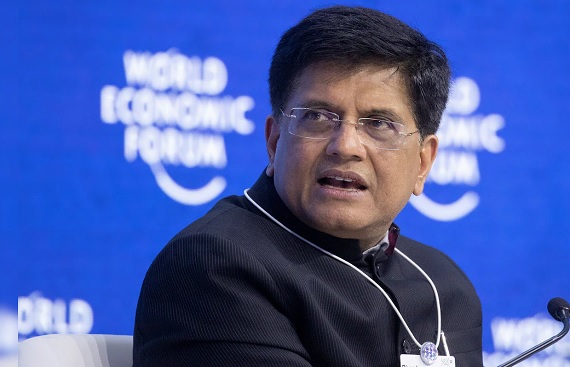Startup Debate: Food Apps Serve Today, Deep-Tech Builds Tomorrow, Says Marketing Guru
By
siliconindia | Friday, 11 April 2025, 23:10 Hrs

India needs to shift from its present leadership in consumer-tech and quick-service apps to more sophisticated, research-oriented areas such as semiconductors, clean energy, and artificial intelligence, if it is to stake its claim as a global tech superpower, according to Rajendra Srivastava, one of India's leading marketing thinkers.
Chiming into the recent controversy triggered by Commerce Minister Piyush Goyal's blunt criticism of India's startup ecosystem, Srivastava—former Dean of the Indian School of Business (ISB) and currently Novartis Professor of Marketing Strategy and Innovation called upon India to shift its tech goals. In a Medium article, Srivastava noted that although the last decade's success in consumer technology has helped create a thriving digital economy, the nation needs to now look towards creating global tech behemoths like Tesla, Huawei, and Taiwan Semiconductor Manufacturing Company (TSMC).
"India has created the cheapest data in the world and a army of app developers", Srivastava penned. "But the future lies in mastering difficult, deep-tech areas like electric vehicles, artificial intelligence, semiconductors, clean energy, and advanced robotics".
Srivastava underscored that such industries are much more R&D-intensive and require not just scientific competence but also long-term funding and policy support. In contrast to food delivery or lifestyle apps that can be developed and scaled in less than a year, he added, deep-tech startups take 5 to 10 years of patient capital before they deliver commercial outcomes.
"Those rapid exits and rapid returns that a lot of Indian investors have always looked for are not compatible with the long gestation periods of deep-tech innovations," he added. This combined with India's traditionally risk-averse funding culture has left a vacuum in sectors that are essential for future growth.
Emphasizing the imbalance in investments across the world, Srivastava explained that private venture capital in India most of it foreign has predominantly gone into software and platform-based companies that provide quicker user growth and scalability. Consequently, India is now full of consumer-centric startups, but struggling to attract backers for science and hardware-driven innovation.
Comparing with China, Srivastava highlighted how long-term industrial planning by state-sponsored initiatives such as Made in China 2025 and the 14th Five-Year Plan enabled the nation to achieve considerable progress in strategic technologies. China's government, he explained, supported these aspirations with regular funding, infrastructure creation, and procurement assistance for decades.
"India, on the other hand, had a more laissez-faire strategy until lately favoring ease of doing business and digital infrastructure without channeling investment into high-tech fields," Srivastava commented.
Although noting improvements over recent years such as the development of the National Deep Tech Startup Policy, establishment of regulatory sandboxes, and a better intellectual property (IP) regime he described them as "belated first steps."
"Policy foundations we are setting today is what nations like China started decades ago. Policy coherence in deep tech is as important as capital," Srivastava further said.
Minister Goyal, speaking at Startup Mahakumbh last month, had set social media ablaze with broadside criticism of the Indian startup ecosystem's emphasis on lifestyle and convenience. Referencing the number of food delivery platforms, artisanal brands, and online gambling platforms, Goyal stated that India needs to go beyond gluten-free ice creams and focus on machine learning, robotics, and factory automation like their Chinese counterparts.
Though Goyal's comments touched off varied responses from the startup ecosystem, Srivastava believed the minister's criticism "rings true" and must be heard as a wake-up call instead of a denunciation of the current achievements.
Goyal was not dismissing the current successes of Flipkarts and Zomatos, Srivastava explained. "Instead, it's a recognition that the next stage of growth will arise from creating India's own Teslas and TSMCs.
Srivastava emphasized that this will require painful changes including more patience on the part of investors, sustained cooperation among government, industry, and academia, and a move away from short-term metrics toward strategic outcomes.
"India rode the waves of IT services and mobile software nicely, but blew it on the semiconductor and electronics manufacturing revolution," he cautioned. "The next S-curve AI, clean energy, advanced manufacturingprovides an opportunity to get back on the value chain."
Urging a balance, Srivastava established that consumer-tech apps have been useful to India's here and now, but deep-tech innovation would define its future. What India needs most, he asserted, is to appreciate the convenience of a food app and the sophistication of a silicon chip.
A re-tuned strategy that is biased towards deep tech backed by policy, capital, and patience will be the key to India becoming a real technological and economic superpower in the coming decades.

